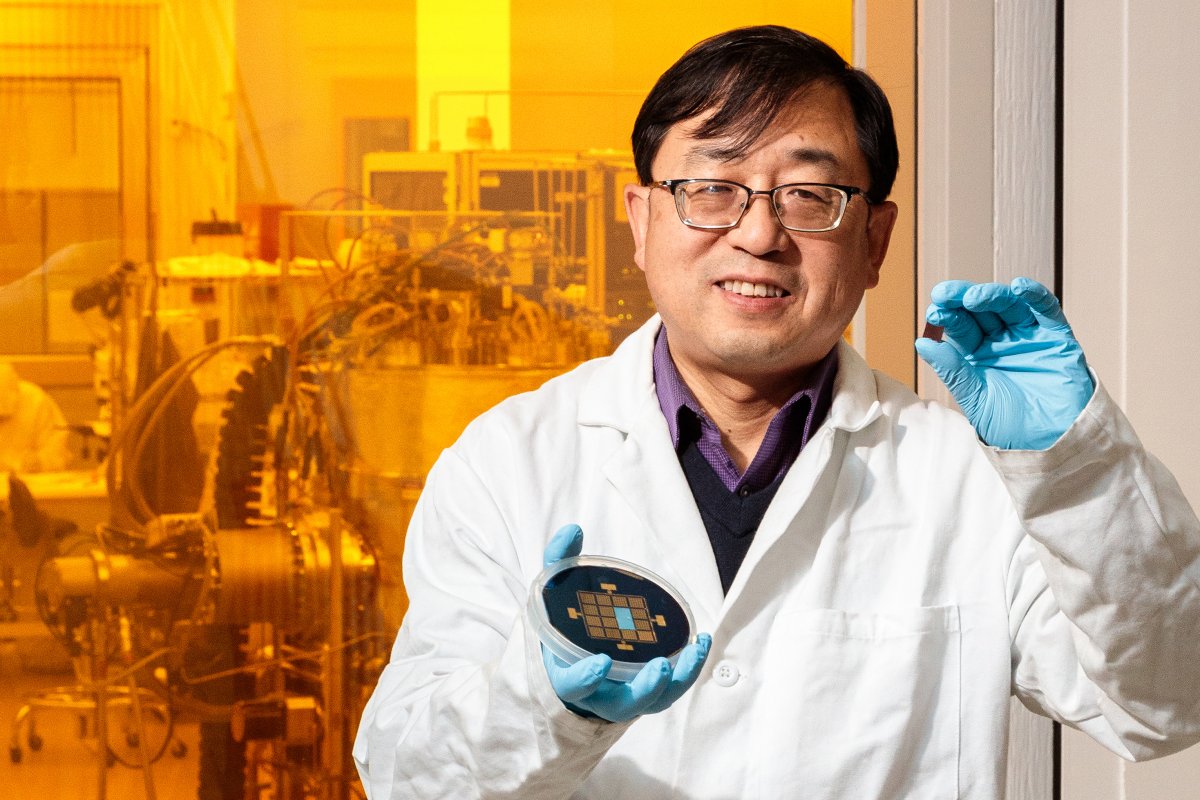CSE professor honored with IEEE Magnetics Society Achievement Award

Wang holds 65 patents, has co-founded three startup companies, and is in the National Academy of Inventors
MINNEAPOLIS / ST. PAUL (01/30/2024)—University of Minnesota Twin Cities College of Science and Engineering (CSE) Professor Jian-Ping Wang has been honored with the 2024 Institute of Electrical and Electronics Engineers (IEEE) Magnetics Society Achievement Award. This is the highest honor in the field of magnetics and recognizes outstanding contributions to the field.
Wang, a Distinguished McKnight University Professor who also holds the Robert F. Hartmann Chair in the Department of Electrical and Computer Engineering, was honored “For pioneering contributions and inventions to magnetic materials, devices, and applications in information storage and computation, particularly on magnetic media, MRAM, and in-memory computing." A formal ceremony is scheduled in May 2024 at the Intermag conference in Rio de Janeiro, Brazil.
Wang is a world-renowned researcher in novel magnetic materials and spintronic devices for information storage, memory and computing, and biomedical sensing. His research consists of many firsts in the field. Wang’s pioneering experimental demonstration on the exchange coupled composite (ECC) media has been used in hard disk drive (HDD) technology since 2008.
Wang is the inventor of novel magnetic tunnel junction (MTJ) structures and spin-orbit torque (SOT) materials and devices, both of which have been deployed and are being actively explored for magnetic memory and spintronic computing applications.
In addition, he is the inventor of Computational Random Access Memory (CRAM) for computing using memory cells, which has been validated through benchmarking efforts to address energy-efficient memory-centric computing for artificial intelligent (AI) applications.
Wang also has co-founded three startup companies—Niron Magnetics Inc., Zepto Life Technology LLC, and Universal Magnetic Systems LLC. Wang’s invention of the rare-earth-free and environment-friendly iron nitride permanent magnet led to Minnesota-based startup company Niron Magnetics, which was named one of Time Magazine’s Best Inventions of 2023. Permanent magnets play an increasingly vital, hidden role in modern technologies. Wang’s invention of magnetic biosensing has led to Minnesota-based startup company Zepto Life Technology to develop technology for early detection of diseases.
Wang holds 65 patents. At the University of Minnesota, he has advised 38 Ph.D. students, five master's students, and supervised 18 postdoctoral associates, who now work in industries and academia throughout the U.S.
Wang earned his bachelor's degree in physics in 1989 and his master's degree in magnetic materials in 1992, both from Lanzhou University. He received his Ph.D. in nanomagnetism from the Institute of Physics, Chinese Academy of Sciences, Beijing in 1995. He joined the faculty of the University of Minnesota in 2002. He was the director of the Center for Spintronic Materials, Interfaces, and New Architectures (C-SPIN) from 2012 until 2017, and of the Center for Spintronic Materials for Advanced Information Technologies (SMART) from 2018 to 2022. He was named a Fellow of IEEE in 2015, American Physical Society (APS) in 202, and National Academy of Inventors (NAI) in 2022.
Learn more about Professor Jian-Ping Wang’s research.
